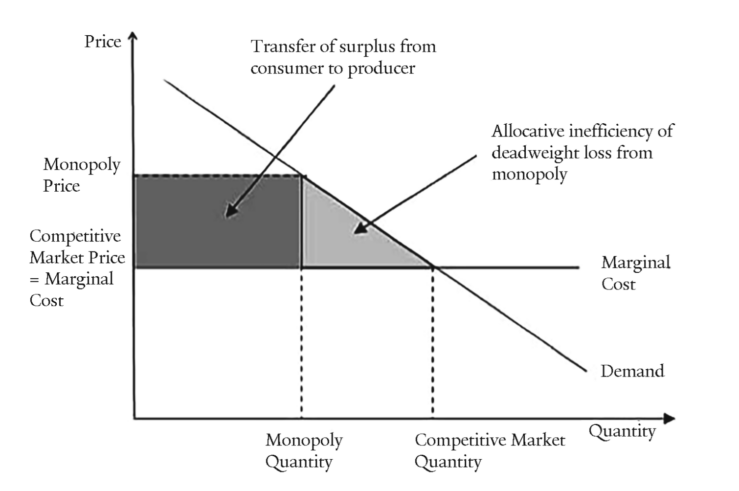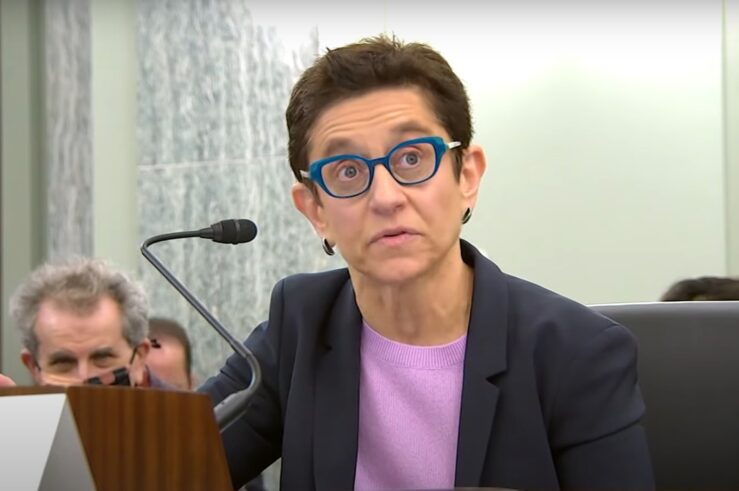Showing archive for: “Rule of Reason”
Why FTC Competition Rulemaking Likely Will Fail
I. Introduction In over a century of existence, the U.S. Federal Trade Commission (FTC) has been a policy leader in developing American thinking about and in enforcing antitrust and consumer protection laws pursuant to several specific statutory mandates. It has also promulgated a substantial number of consumer protection rules, dealing with a wide variety of practices. ... Why FTC Competition Rulemaking Likely Will Fail
AICOA: An Affront to the Rule of Law
The fate of the badly misnamed American Innovation and Choice Online Act, S. 2992 (AICOA), may be decided by the August congressional recess. AICOA’s serious flaws have been ably dissected by numerous commentators (see, for example, here, here, here, and here). Moreover, respected former senior Democratic antitrust enforcers who have advocated more aggressive antitrust enforcement ... AICOA: An Affront to the Rule of Law
Regulating Competition at the FTC
Introduction In November 2021, the Federal Trade Commission (FTC) published a draft strategic plan for fiscal years 2022-2026 that previewed its vision for enforcement without the rule of reason guiding the analysis and without consumer welfare defining the objective. The draft plan dropped a longstanding commitment from the FTC’s previous strategic plans to foster “vigorous ... Regulating Competition at the FTC
Rules Without Reason
In his July Executive Order, President Joe Biden called on the Federal Trade Commission (FTC) to consider making a series of rules under its purported authority to regulate “unfair methods of competition.”[1] Chair Lina Khan has previously voiced her support for doing so.[2] My view is that the Commission has no such rulemaking powers, and ... Rules Without Reason
NEW VOICES: FTC Rulemaking for Noncompetes
On July 9, 2021, President Joe Biden issued an executive order asking the Federal Trade Commission (FTC) to “curtail the unfair use of noncompete clauses and other clauses or agreements that may unfairly limit worker mobility.” This executive order raises two questions. First, does the FTC have the authority to issue such a rule? And ... NEW VOICES: FTC Rulemaking for Noncompetes
The FTC Abandons the Free Market
In December 2021, the Federal Trade Commission (FTC) released its statement of regulatory priorities for 2022, which describes its intention to expand the agency’s rulemaking activities to target “unfair methods of competition” (UMC) under Section 5 of the Federal Trade Commission Act (FTC Act), in addition to (and in some cases, presumably in place of) ... The FTC Abandons the Free Market
Can the FTC Use Rulemaking to Change Antitrust Law?
FTC Rulemaking Power In 2021, President Joe Biden appointed a prolific young scholar, Lina Khan, to chair the Federal Trade Commission (FTC). Khan strongly dislikes almost every element of antitrust law. She has stated her intention to use notice and comment rulemaking to change antitrust law in many ways. She was unable to begin this process ... Can the FTC Use Rulemaking to Change Antitrust Law?
A Change in Direction for the Federal Trade Commission?
While antitrust and regulation are supposed to be different sides of the same coin, there has always been a healthy debate over which enforcement paradigm is the most efficient. For those who have long suffered under the zealous hand of ex ante regulation, they would gladly prefer to be overseen by the more dispassionate and ... A Change in Direction for the Federal Trade Commission?
Assessing Less Restrictive Alternatives and Interbrand Competition in Epic v Apple
The International Center for Law & Economics (ICLE) filed an amicus brief on behalf of itself and 26 distinguished law & economics scholars with the 9th U.S. Circuit Court of Appeals in the hotly anticipated and intensely important Epic Games v Apple case. A fantastic group of attorneys from White & Case generously assisted us ... Assessing Less Restrictive Alternatives and Interbrand Competition in Epic v Apple
Toward a Dynamic Consumer Welfare Standard for Contemporary U.S. Antitrust Enforcement
For decades, consumer-welfare enhancement appeared to be a key enforcement goal of competition policy (antitrust, in the U.S. usage) in most jurisdictions: The U.S. Supreme Court famously proclaimed American antitrust law to be a “consumer welfare prescription” in Reiter v. Sonotone Corp. (1979). A study by the current adviser to the European Competition Commission’s chief ... Toward a Dynamic Consumer Welfare Standard for Contemporary U.S. Antitrust Enforcement
The Internationalization of Due Process, Federal Antitrust Enforcement, and the Rule of Law
The acceptance and implementation of due-process standards confer a variety of welfare benefits on society. As Christopher Yoo, Thomas Fetzer, Shan Jiang, and Yong Huang explain, strong procedural due-process protections promote: (1) compliance with basic norms of impartiality; (2) greater accuracy of decisions; (3) stronger economic growth; (4) increased respect for government; (5) better compliance ... The Internationalization of Due Process, Federal Antitrust Enforcement, and the Rule of Law
The Return of (De Facto) Rate Regulation: Title II Will Slow Broadband Deployment and Access
President Joe Biden’s nomination of Gigi Sohn to serve on the Federal Communications Commission (FCC)—scheduled for a second hearing before the Senate Commerce Committee Feb. 9—has been met with speculation that it presages renewed efforts at the FCC to enforce net neutrality. A veteran of tech policy battles, Sohn served as counselor to former FCC ... The Return of (De Facto) Rate Regulation: Title II Will Slow Broadband Deployment and Access










